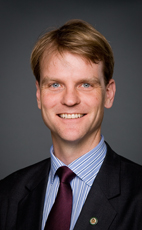Mr. Speaker, as my hon. friend the member for St. John's East knows, because we have been briefed on this subject as recently as last week, there is a training mission under way in Afghanistan. Our government has been clear about its intentions in this regard from the beginning. The combat mission is over.
I am very grateful to have this opportunity to set the record straight regarding the government's intentions for what remains an evolving mission in Afghanistan.
Let me begin by reiterating that the core of the question put by the member opposite is based on leaked information, and it is not government policy to comment on such speculative matters.
However, I can say this. In accordance with the parliamentary motion passed in 2008, the Canadian Forces' combat mission in Kandahar ended in July 2011. The government was very clear and consistent about this. The Canadian Forces carried out their last major combat operation in a rural area of Kandahar in June.
In July there was a handover to a mission transition task force, whose mandate is to ensure that our withdrawal from Kandahar province by the year's end is conducted effectively, while maintaining accountability for our equipment, materiel and personnel. This will allow the Canadian Forces to meet the government's commitment to redeploy fully from Kandahar by December 31, 2011.
Furthermore, a contingent of Canadian Forces members will remain in Kandahar until November 2011 to fulfill their commitment regarding NATO support positions and staff positions. This situation and this Canadian presence in Kandahar were explained clearly during the last committee meeting.
The Canadian Forces completed a smooth transfer of their area of responsibility to other coalition forces in the Kandahar area, and our partners will continue to build on our successes in order to help the Afghan government ensure that country's safety and stability.
This has been a collaborative and integrated approach every step of the way. It is only because of the seamlessness that we have been complimented by allies, including the United States, for ensuring a smooth transition under difficult and challenging circumstances.
Although the Canadian Forces' combat mission in Afghanistan has drawn to a close, our commitment to Afghanistan remains long term. We will maintain a whole-of- government presence in the country, through our governance, development and military training work, until March 2014.
We are there at the request of the Government of Afghanistan, working alongside many NATO international partners. We are also committed to supporting Afghanistan, above all, building up security and governance institutions required to bring peace and prosperity to its people. Training the Afghan National Security Forces has been an integral component of our mission to date, and Canada's military trainers are recognized as among the best in the world. That is why, in November 2010, the government announced that forces would continue to support Afghan National Security Forces training through a contribution of up to 950 personnel in both training and support positions within the NATO training mission in Afghanistan.
This mission, centred on Kabul, is at several locations in Kabul, as the member opposite noted correctly, because the Afghan national army and police are being trained at several locations. We will also include smaller training locations in Mazar-e-Sharif in the north and Herat in the west. It will focus on training and mentoring the members of these institutions in an institutional setting. Well-led, well-trained, well-equipped Afghan National Security Forces will enable the Government of Afghanistan to assume increasing responsibility for Afghan security.
I must reiterate for the benefit of this House that the attack reported to have involved Canadian Forces last week was a serious attack for Kabul, but if and when Canadian Forces respond to an attack, they will be acting in self-defence. That is an entirely different context to the combat mission that we had under way earlier this year and in previous years.

